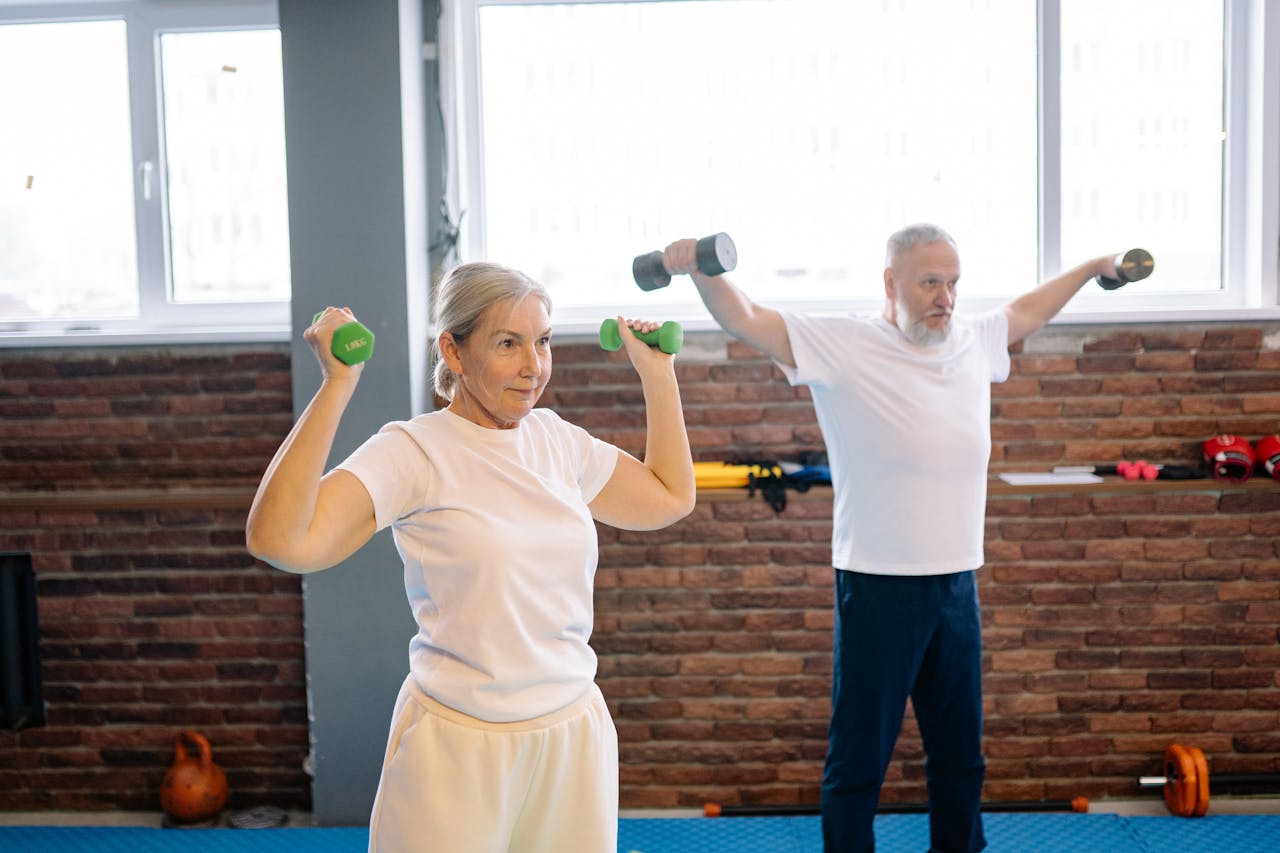By James McKendry, University of British Columbia, The Conversation
Getting out of bed and sitting on the toilet may be relatively simple tasks for many people, but they become more difficult with age.
This is because of one of the many bodily changes associated with aging: our muscles shrink and become weaker, a condition known as sarcopenia.
Most people are aware of the recommendations for regular physical activity, and the associated health benefits. They also know that good nutritional habits complement a healthy active lifestyle. Unfortunately, few people know what to put on their plates to ensure they hold on to their muscles as they age.
Food comprises three key energy-yielding macronutrients: carbohydrates, fats and protein. Protein — most commonly found in meat, fish, dairy, eggs, and to varying degrees in plants and grains — provides the building blocks (amino acids) to make important bodily tissues, such as skeletal muscle.
Aging may reduce our ability to digest, absorb and utilize the nutrients in food. To ensure older adults can continue to do the things they love well into their later years, we must emphasize the importance of increasing the amount and improving the quality of protein they consume.
Why more protein matters for older adults
Unlike carbohydrates, which are stored in muscle and liver as glycogen, and fats, which are stored in adipose tissue, we have nowhere to store excess protein/amino acids. So, we must consume enough protein daily to provide our cells with the materials needed to function correctly.
Current recommendations for protein intake are the same for all adults, regardless of age: 0.8 grams of protein per kilogram of body mass daily (g/kg/d). But estimates suggest that up to 30-76 per cent of older adults aren’t consuming enough protein.
Because older people’s muscles can’t use dietary protein as effectively as younger people to maintain muscle, experts suggest that older adults looking to keep their muscles should consume approximately 50 per cent more protein (1.2 g/kg/d).
Quality, not (just) quantity
Eating more protein is certainly one way to overcome age-related impairments in muscle building, but this might not always be feasible for older individuals — particularly those with a smaller appetite or those with dental issues. Another strategy is to improve the protein quality and evenly distribute intake throughout the day.
Two key factors determine the quality of a protein: its essential amino acid content and how well it is digested and absorbed.
Leucine, one of the nine essential amino acids, switches on the body’s muscle-building processes. So, proteins with a greater leucine content are generally considered better for muscle growth.
With concerns surrounding ethical food production and environmental sustainability,
there is a growing interest in plant-based protein sources. Pea protein is one example of a promising plant-based protein source that contains sufficient leucine. But we know very little about its effect on muscle building in older adults.
Plant-based protein for older muscles
While part of Stuart Phillips’s research group at the McMaster Institute for Research on Aging, I led a human randomized control trial to explore the impact of protein quality on the rate at which older adults build muscle.
We put 31 adults between 60 and 80 years old through a strict dietary intervention with two phases: a control phase of seven days in which participants were fed protein in line with current recommendations (0.8 g/kg), followed by a seven-day supplemental phase where participants were randomly assigned to consume an additional 25 grams of a protein supplement — whey, pea or collagen — at breakfast and lunch, totalling an extra 50 grams daily.
The supplements were consumed during breakfast and lunch because those are typically the meals with the lowest protein content for older adults.
We then performed muscle biopsies, which showed that consuming higher-quality (whey and pea) protein supplements at breakfast and lunch increased muscle-building in older adults by almost 10 per cent. However, collagen protein — a supplement heavily marketed towards older adults — did nothing to bolster muscle-building in our older adults, as a previous study also found.
Adding more protein to the diet can improve muscle building, but the protein must contain sufficient essential amino acids, in particular leucine.
We also demonstrated that plant-based protein sources can be as effective as animal-based protein sources to build muscle in older adults.
Debunking common myths about protein
If you are worried about increasing protein intake because it may impact other aspects of your health, there is some excellent news to share.
Increasing protein intake will NOT give you cancer, cause kidney failure or dissolve your bones.
Older adults who increase their intake of high-quality protein (and engage in regular physical activity) may help slow the loss of muscle and extend the years spent in good health.
Pack your diet with enough high-quality protein
The benefits of more protein in the diet extend beyond muscle. Protein-containing foods also provide other essential nutrients such as vitamins, minerals and fibre from grain sources, and can help you feel fuller for longer, reducing the likelihood of excessive weight gain.
Make protein the focus of each meal and aim to consume roughly 25-40 grams — or about one to two palm-sized portions — of protein for breakfast, lunch and dinner. Preparing meals ahead of time and incorporating protein-filled snacks can help you stick to your daily protein goals. Some good options include Greek yogurt, cottage cheese, jerky, canned fish, eggs, and nuts.
Without a plan, sarcopenia can sneak up on you. So, whatever your dietary preferences, animal-based (meat, fish, eggs, dairy) or plant-based (tofu, nuts, seeds, lentils) protein can provide you with the nutrients needed to maintain muscle as you age.![]()
James McKendry, Assistant Professor in Nutrition and Healthy Aging, University of British Columbia
This article is republished from The Conversation under a Creative Commons license. Read the original article.






















